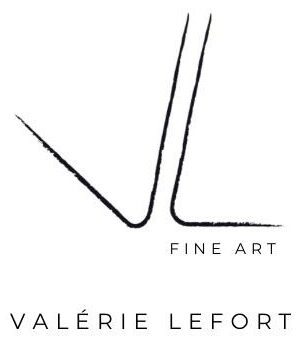Jeewon Palvishee
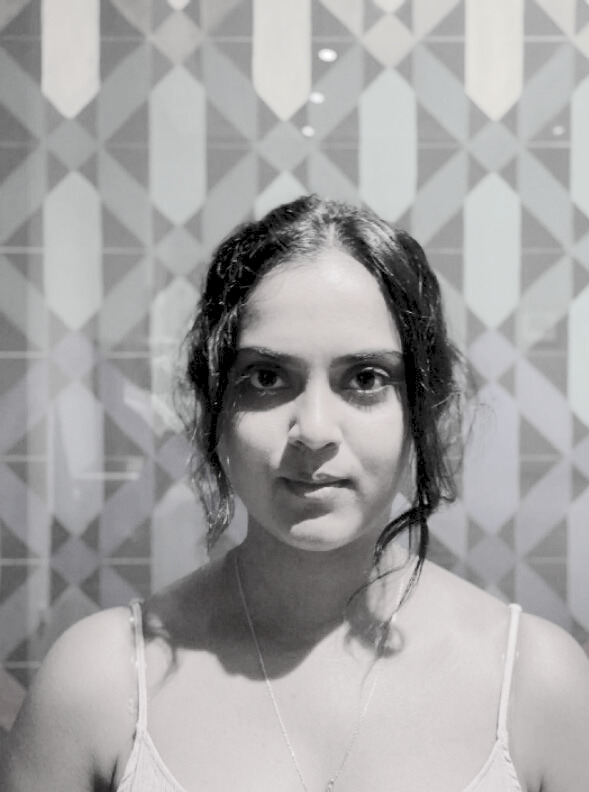
“The way the world perceives me is not something I would choose to carry.”
Two of her greatest passions are painting and sewing (embroidery). Through her paintings and textile art, she seeks to illustrate her personal experience, to immortalize the lives of women, and to share those stories with others.
A young artist, Palvishee Jeewon grew up in Roches-Noires, Mauritius. Born on March 8, 1996, she has been fascinated by art from a very young age. This passion led her to join the School of Fine Arts of Mauritius, where she earned a Bachelor’s degree in Arts with a specialization in painting from the University of Mauritius in collaboration with the Mahatma Gandhi Institute after four years of study.
Diagnosed with deuteranopia (red-green color blindness) in her teenage years, she never gave up on her passion for art. She earned a scholarship to attend ESADMM in France after ranking first in her undergraduate studies. Joining an international art school abroad was a new experience for her, but she embraced the challenge and successfully completed her Master’s in Fine Arts. During her studies, she worked part-time as an art educator in leisure centers to cover her material expenses.
While in France, she was invited by the mayor of Martigues to participate in a summer group exhibition in 2021. She also took part in the 39th Salon de Mai, which marked her very first exhibition in Mauritius as a young artist. Palvishee is currently teaching at the School of Fine Arts in Mauritius.
Her works are born from her personal experience as a woman. When asked about her paintings, she replies simply: “Women.” Deeply inspired by Indian mythology, she creates her own symbolic motifs, each carrying a specific meaning.
“My work is based on my personal experience, which is a product of a patriarchal social order. I live in an environment where women are viewed as mere objects—belonging to someone, expected to follow rules set by men.”
Although our world is described as civilized, many women across countries, cultures, families, and households still suffer under the pressure of patriarchy. Even mothers and grandmothers, who have themselves lived this painful, oppressed life under male control, are conditioned to believe that daughters must be tamed and controlled. In turn, they impose the same restrictions on their daughters, preparing them to become the property of a future husband, thus reinforcing the cycle of patriarchy.
Our bodies, our lives do not belong to us—they belong to men, to society, with all its control and limits imposed on women. We are judged by men, by society, by religion—with written and unwritten laws restricting our roles in every sphere of life. We are forced to live a life that is not truly ours. How we dress, where we go, how we sit, how we walk, who we meet—shouldn’t all these things be our own decisions first? Shouldn’t we take control of our bodies, our lives, and have the same freedom as our male counterparts to decide for ourselves?
We are all aware of the taboos surrounding female sexuality and hygiene, despite increased awareness. Many women still feel shy and embarrassed to speak openly about their sexuality. They even feel ashamed to buy or hang lingerie to dry. Yes, in certain cultures and societies, drying underwear in open spaces is seen as a source of shame.
For this work, I was inspired by the idea that in some cultures, drying women’s panties and bras in public is shameful, whereas it is perfectly acceptable for men to dry theirs.
Many believe that underwear is extremely private and should remain so. There’s no need to display it and let others see the color or brand you wear.
Bras remain a triggering garment—not only because men can’t deal with them, but also because women have meticulously hidden them, never allowing them to be seen openly. It’s not the lingerie that’s guilty—it’s patriarchy and the stigma.
“I use second-hand clothes as a metaphor to represent society, my family, and the environment I live in. These clothes may be seen as worthless to others, but for me, they represent a profound discovery—a discovery of emotions, feelings, presence, or identity—because a heart once beat behind them. Every woman is unique, regardless of race, ethnicity, sexual orientation, socioeconomic status, age, physical ability, religious belief, or political conviction. I strive to give a voice to all these women.
As women, we are taught from childhood the importance of pleasing others: be pretty, be quiet, be nice, be exactly what he wants. So, we learn to adapt, to show only our best selves to those we seek to please.
But our other facets remain—simmering, boiling beneath the surface—feeling unwanted, ignored, cast aside, all hidden under a pleasant smile.
We are nice girls who are, in reality… afraid.”
VLFineart’s vision
Jeewon seeks to free herself from educational and cultural constraints and uses her art as a form of protest and liberation. Her creations become both a tool of resistance and a path to empowerment.
The Works of Jeewon Palvishee

The washing line
« The washing line 160 x 140 cm »
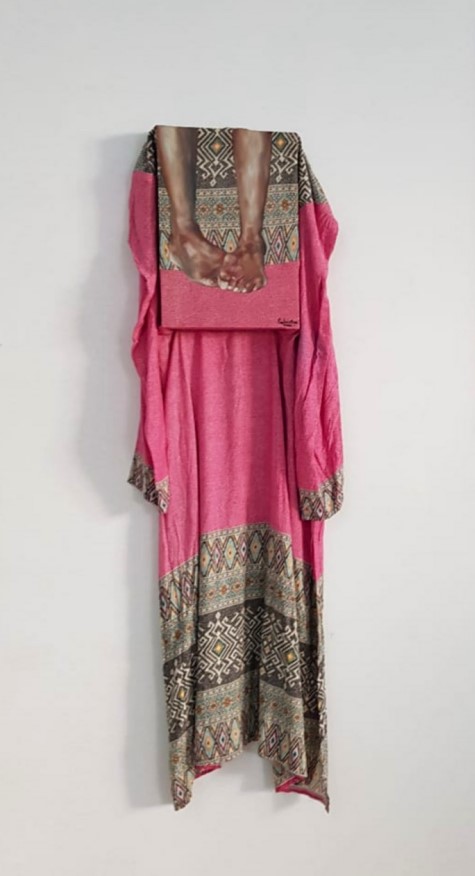
Mo Mama So Robe
« Mo Mama So Robe 110 x 30 cm »

Kilot Ble
« Kilot Ble 120 x 100 cm »
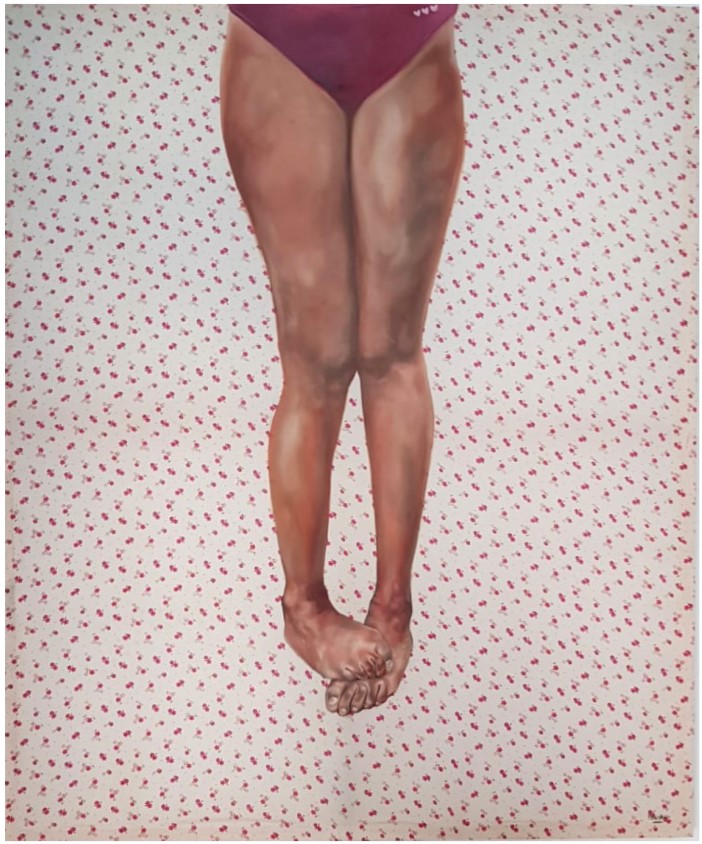
Kilot Fushia
« Kilot Fushia 120 x 100 cm »
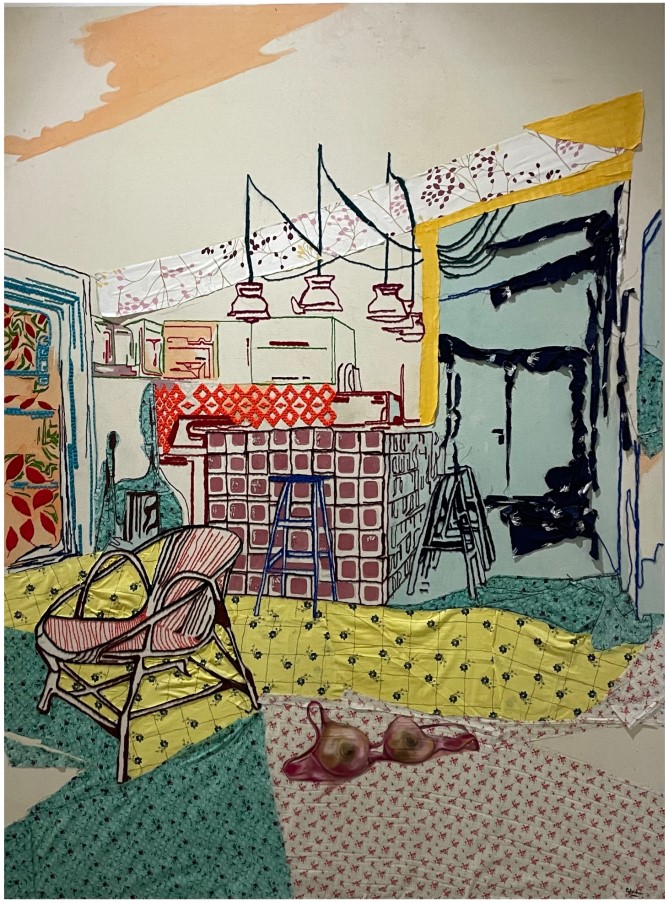
Les Kocottes
« Les Kocottes 200 x 150 cm »
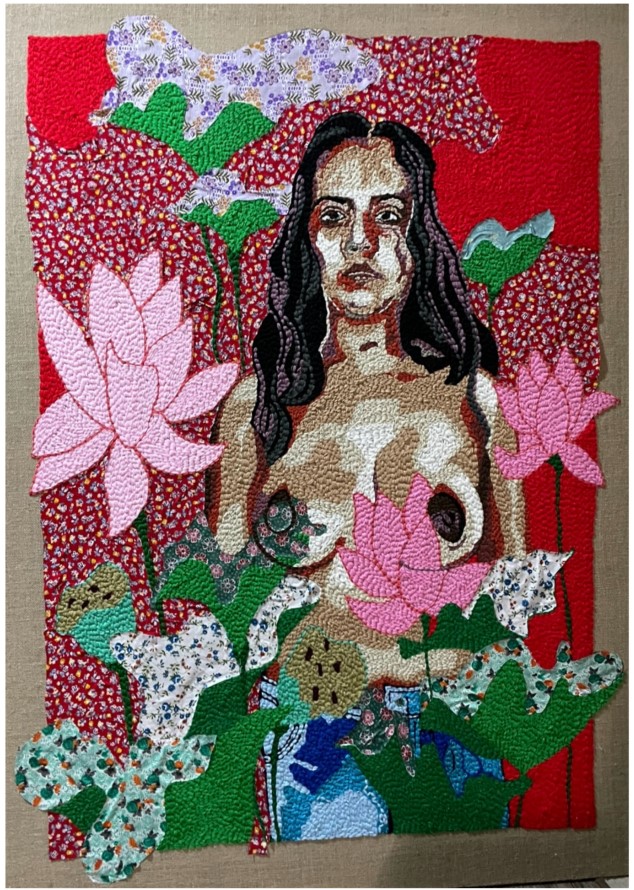
Lotus 2
« Lotus 2 200 x 110 cm Broderie »
